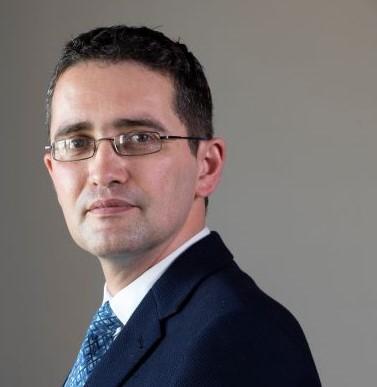The code red for humanity
-
Pre-eminent climatologist says science can help prepare for what’s coming.
The Intergovernmental Panel on Climate Change’s (IPCC) report, released in August 2021, has been called a “code red for humanity” by the United Nations Secretary General António Guterres.
Professor Francois Engelbrecht, who is distinguished professor of climatology at the Global Change Institute at Wits, was the invited lead author of Assessment Report Six of the IPCC. He shared his insights with alumni during a webinar on 28 October 2021, ahead of the historic UN Climate Change Conference, known as COP26, in Glasgow. The landmark study warned of human activity increasingly changing the climate in unprecedented ways.
“The Earth is warming faster than previously thought and the window is closing to avoid catastrophic outcomes,” said Professor Engelbrecht. This is evidenced by extreme weather events this year alone: in August the mega fires in the Mediterranean and California; in June unprecedented heatwave in the Pacific north west, in July the catastrophic flooding in Germany and the worst drought (worst in four decades) in Madagascar.
Professor Engelbrecht said the IPCC reports offer a sober assessment of the planet’s future. The reports are collaborative efforts, comprising of data from 4 000 scientific publications, prepared by around 234 global scientists from 66 countries over a three-year long period.
“Global warming has now reached 1.1 ºC. The authors believe that 1.5 ºC will be reached by 2040 in all scenarios. If emissions aren't slashed in the next few years, this will happen even earlier. It’s all about the possible tragectories to reduce carbon emissions,” said Professor Engelbrecht. “There are starkly different pathways into the future. Scientists were more hopeful about the planet if global emissions can be cut in half by 2030 and reach net zero by the middle of this century, we can halt and possibly reverse the rise in temperatures.
“The report assesses that under strong and immediate climate action, with deep cuts in CO2 emissions in the 2020s, followed by continued mitigation to achieve net zero emissions by 2050, it is likely that the 2°C threshold will not be exceeded. However, even with these best-effort mitigation efforts, it is more likely than not that the 1.5°C threshold will be exceeded by a small margin.”
He outlined the steps required to make this a possibility:
- Investment in new fossil fuels must stop immediately;
- Net-zero emissions must be achieved by 2050;
- All new gas and oil projects must be stopped;
- Annual energy investment will surge to $5 trillion by 2030 from $2.3 trillion, adding 0.4% to the global GDP growth;
- Electric vehicles should make up more than 60% of car sales by 2030;
- Sales of internal combustion engine cars should be stopped by 2035; and
- 70% of electricity should be generated from solar and wind by 2050.
“If a decrease in the temperature of the planet is not achieved, the world will be completely transformed... Our generation will be committing future generations to a completely differently world. We are literally making the world smaller for future generations to live in,” he said.
Professor Engelbrecht indicated that the southern hemisphere would be particularly vulnerable. For South Africa, this means more frequent, multi-year droughts, prolonged and more severe heat waves, the collapse of livestock and staple food agriculture, and even the possibility of hurricanes making landfall in the country, among other risks.
He discussed the five tipping points in southern Africa and said that “every bit of warming matters. We need immediate action for both climate change mitigation and adaptation.”
He ended the talk on a hopeful note: "We’re preparing the region through the research that we’re undertaking at the Global Change Institute. We know to a large extent what’s coming…It means we can already prepare. How can we make our communities less vulnerable? We can turn science into action.”
Professor Engelbrecht’s full talk can be accessed here:


